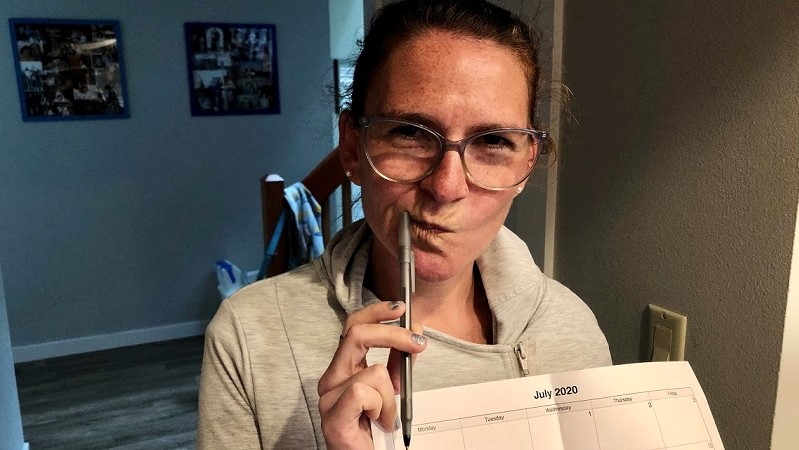As the days seem to run together more than they usually do, it’s easy to lose track of weeks and months, but historically, dividing our year into 30-day segments has been not only significant but necessary. When children are toddlers, we count their lives by how many months old they are. Bills are due every month. Programs we attend (now virtually) happen on a monthly basis. When we’re counting down to a major life cycle event like a bar mitzvah, we also count down by 30-day increments. There’s something almost instinctive about this time frame. Perhaps it’s because it has a clear, defined beginning and end. Or perhaps it’s because this cycle is naturally present in our lives in menstruation or the lunar cycle. Whatever the reason, the 30-day time frame has inherent value and meaning in our lives.

The number 30 also has biblical roots. Our double parshah this week, Parshat Chukat-Balak, is full of plot twists and new experiences for the Israelites. The lands of Sichon and Og are conquered, both Miriam and Aaron die, and we learn that Moshe will not be allowed to enter into the land of Israel. Parshat Balak is also the story of Balak, son of Tzipur, and king of Moav, who solicits Balam the “prophet” to curse the children of Israel. God allows Balam to go to the land of Moav, but only if he will speak what God tells him to say. On the way there, Balam finds himself frustrated with his donkey, who refuses to move because as it turns out, the donkey sees an angel of God in the road. However, only the donkey can see the angel, Balam cannot, so Balam becomes angry at his stubborn animal and beats the donkey.
But it’s in Chukat where we see the significance of a month of time. In this section, we read about the death of Aaron, and when Aaron dies, the community mourns for him for 30 days. In Hebrew and in Jewish mourning tradition, this is called Sheloshim, and this sacred period of mourning is still observed by many today following the loss of a loved one. For these 30 days, life feels upside down, not just because of the emotions surrounding a death, but also because many Jews refrain from the normal celebrations of life, like parties or dances. Many people also do not shave or even listen to the radio. Abstaining from normal life for these 30 days following a loss is meant to help us readjust to our own lives and reenter the world in this new normal.
Interestingly, just one parshah earlier, we learn about the redemption of a first-born child from service to the priest. This ceremony is also conducted after 30 days. In a sense, the adjustment of living without someone near to you is not unlike the adjustment to living with a new baby in the house – it’s a significant change. In both cases, life is different and new in ways never imagined before. The Torah understands that it takes time to adjust to new circumstances, and we are obligated as Jews to embrace that time. The more we can accept these transitional periods, the more capable we are of adapting and settling into healthy life rhythms as we change.



